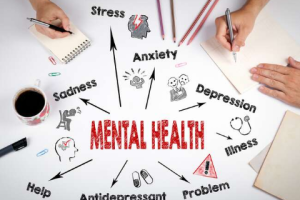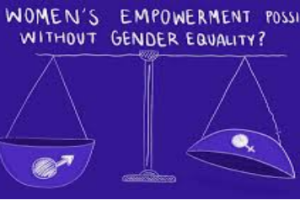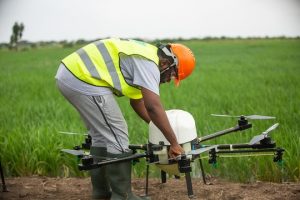
BY ELIZABETH MENGISTU
A century has already elapsed since the global community has started marking International Women’s Day (March 8) with the aim of celebrating the achievements of women in various areas, raising awareness on matters related to gender discrimination, biases and stereotypes as well as to call for action to support and advance gender parity. Frustratingly, contrary to the efforts, the issue of women’s rights and gender inequality has continued to be a challenge that has not yet been resolved.
Today, despite some progress, millions of women around the world are faced with several problems and are experiencing increased gender-based discrimination, exclusion and threats. Sadly enough, the efforts exerted to empower women are facing obstacles, including manmade and natural occurrences.
Nowadays, it is common to see women deprived of their basic human rights- equal access to education, equal payment, to own property, among others which calls every actor to recommitment to make the world more equitable and inclusive for all.
Facing this bitter reality, last Wednesday, the global community marked the International Women Day (March 8) for the 112th time with various programs. In honor of this day, the Government of the United Kingdom (UK) has launched a new strategy, Global Women and Girls’ Strategy, which targets to tackle gender inequality across the globe.
According to a press release sent to The Ethiopian Herald, the strategy aims to tackle increasing threats to gender equality from climate change, humanitarian crisis, conflicts, such as the war in Ukraine and recent attempts to roll back women rights, including in countries like Iran and Afghanistan.
Launching the Strategy in Sierra Leone, UK Foreign Secretary James Cleverly said: “Advancing gender equality and challenging discrimination is obviously the right thing to do, but it also brings freedom, boosts prosperity and trade, and strengthens security – it is the fundamental building block of all healthy democracies,” as to the statement.
The Foreign Secretary also announces a new emphasis on supporting grassroots Women’s Rights Organizations, and funding for a Sexual and Reproductive Health and Rights program that will support an estimated 10 million women Women and girls will be put at the heart of the UK’s international work, with a new strategy that will tackle gender inequality across the globe, the statement added.
“Our investment to date has improved lives around the world, with more girls in school, fewer forced into early marriage and more women in top political and leadership roles. But these hard-won gains in advancing gender equality are now under increased threats. We are ramping up our work to tackle the inequalities which remain, at every opportunity.”
The new strategy puts a continued focus on educating girls, empowering women and girls, championing their health and rights and ending gender-based violence – the challenges the UK believes are most acute, the statement further elaborated.
“Progress towards gender equality is increasingly under threat. Climate change and humanitarian crises continue to disproportionately affect women and girls, there are attempts to roll back on women’s rights including in countries like Iran and Afghanistan, sexual violence is happening in conflicts in Ukraine and elsewhere and violence against women is growing online,” he added.
Launching on International Women’s Day, the new strategy will set out how the UK will work to tackle global gender inequality at every opportunity, including combatting attempts to roll back women’s rights, and work with partners around the world to do the same. For the first time, this strategy commits the Foreign, Commonwealth and Development Office to more than 80 percent of its bilateral aid programs including a focus on gender equality by 2030 remarked Foreign Secretary James Cleverly, the statement reported.
It commits the Foreign, Commonwealth & Development Office (FCDO) to involve its entire network of High Commissions and Embassies around the world to deliver the strategy. This will include UK Heads of Mission developing plans and commitments specific to their host country and raising the most pressing issues with their host governments. The UK will also develop an ambitious new research offer to help the UK and its partners make investment decisions.
Alongside the strategy, the Foreign Secretary will announce a new woman’s sexual and reproductive health and rights program, focused on sub-Saharan Africa, which has some of the highest rates of child marriage and maternal mortality in the world.
“We are announcing up to 200 million Pound towards the WISH (Women’s Integrated Sexual Health) Dividend Women’s Sexual and Reproductive Health and Rights program, focused on Sub-Saharan Africa,” it said.
The program, reaching up to 10.4 million women, will receive up to 200 million Pound and is expected to prevent up to 30,600 maternal deaths, 3.4 million unsafe abortions and 9.5 million unintended pregnancies.
Separately, the UK is also increasing support for women’s rights organizations and movements, recognizing their critical role in advancing gender equality and protecting rights, and amplifying grassroots women and girls’ voices. Most of this, a 38 million Pound program will be delivered through a new partnership with the Equality Fund. Up to 5 million Pound is going to a consortium led by Gender Links, a South African-based women’s rights organization.
According to the statement, the strategy is the first international women and girls’ strategy that brings together all the UK’s development and diplomacy work. The Department for International Development (DFID) produced a Strategic Vision for Gender Equality in 2018. This new strategy is broader, reflecting all the work of the merged Foreign, Commonwealth and Development Office.
The FCDO Women and Girls Strategy commits that at least 80 percent of FCDO bilateral ODA (Official Development Assistance) programs targets gender equality as a policy objective by 2030. We will use the OECD (Organization for Economic Cooperation and Development) DAC (Development Assistance Committee) gender equality policy marker to track this.
The Ethiopian Herald March 10/2023





